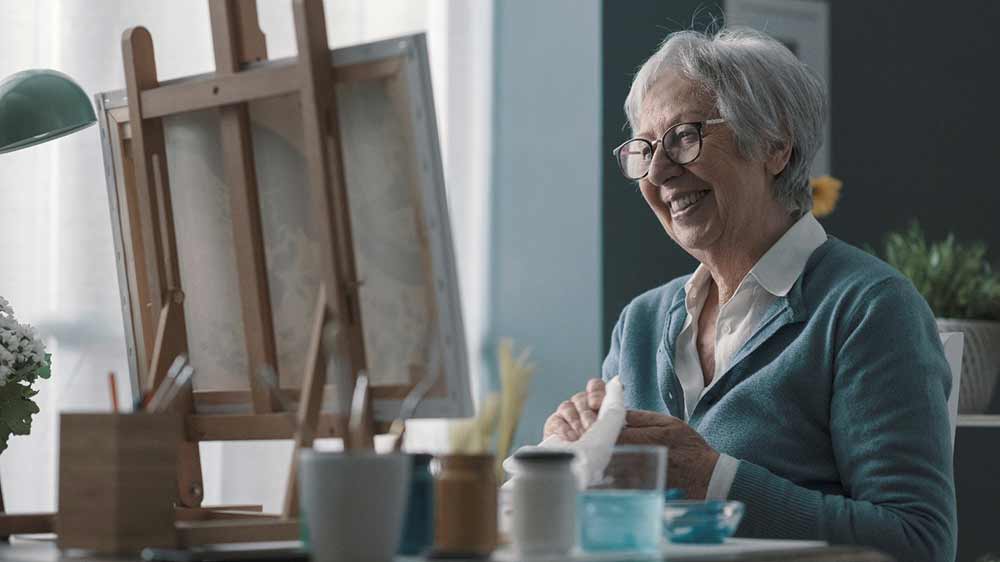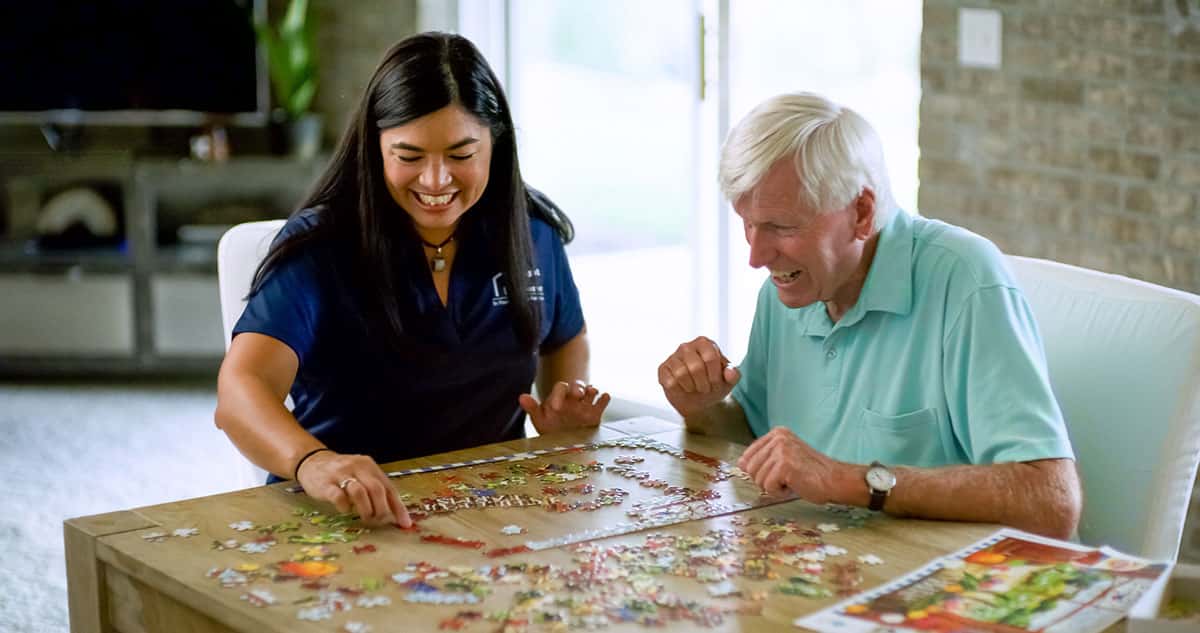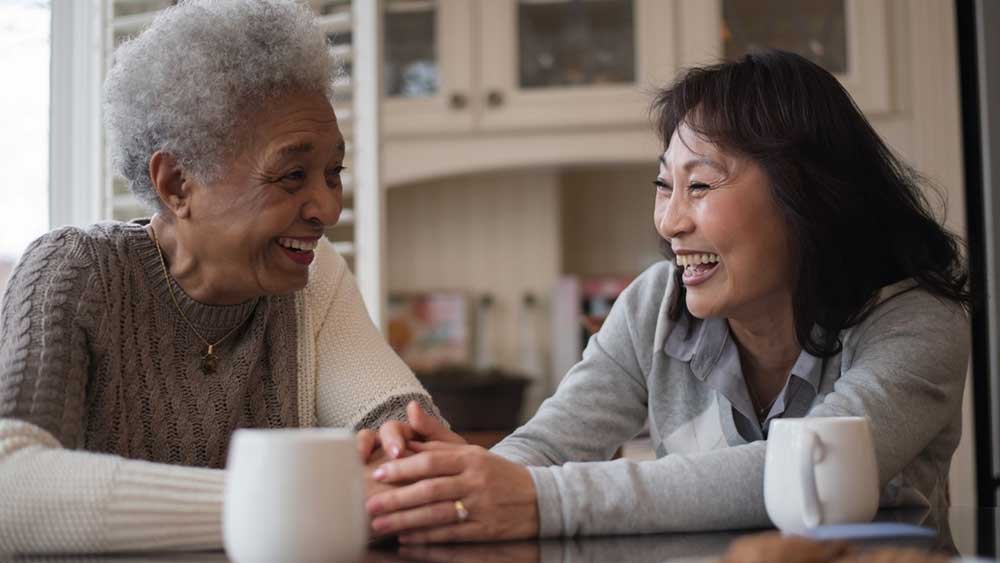

Our Brains Need Exercise, Too
Most people notice changes in their thinking and memory as they grow older. Neurologists tell us that although a certain percentage of older adults develop Alzheimer’s disease or another type of dementia, most memory changes are age related and normal.
Staying physically active benefits every organ in our bodies—and that includes the brain. But did you know that we also need to give our brains a good mental workout?
It was once thought that genes were the top factor for aging brain health. But associate professor Sylvain Moreno of Simon Fraser University has conducted research on the topic, and says, “Our findings show the reverse. With age, your choice of daily activities is more important than your genetics or your current cognitive skills. Our study results show that cognitive decline can be reduced through a combination of active, daily activities—things like using a computer and playing word games.”
Physical exercise strengthens the muscles, but how does brain exercise work? University of California, Berkeley neuroscientist Dr. William Jagust says mental stimulation encourages new connections between brain cells—and these connections provide alternate pathways for accessing memories, making it easier for the brain to compensate for the cognitive changes associated with Alzheimer’s disease. “I think it’s very possible that people who spend a lifetime involved in cognitively stimulating activity have brains that are better able to adapt to potential damage,” Dr. Jagust says.
It's never too late to learn something new.
Life changes such as retirement, giving up driving, health challenges, and the loss of our spouse or friends can make it hard to get enough mental stimulation in our later years. We might find ourselves in a rut, feeling bored and depressed. But it’s worth overcoming those challenges to try something new. Just as we’re advised to add small amounts of exercise to our daily routine, we also can be on the lookout for ways to engage our minds each day.
And the emphasis definitely is on “new,” because neurologists say that when it comes to top-notch brain exercise, novelty is especially beneficial. Try some of these ideas:
- Check out classes for older adults through colleges, senior centers and the parks department. Mental stimulation combined with social interaction can be especially beneficial, either in person or online.
- Create a self-directed learning experience. Online opportunities have flourished and grown during the pandemic. Study something you’ve always wanted to know more about, such as genealogy or history.
- Learn a new language, or try an art form that’s new to you, such as quilting or photography. Dust off your old ukulele, or take up an instrument you haven’t played before. Go to a museum, a concert or a play—if not in person, via a remote interface.
- Read a book, and join an in-person or online book group. Write a memoir or participate in a local history social media group. Join a jigsaw puzzle exchange.
- Play video games. Think they’re a waste of time? Think again! Recent research from the National Institute on Aging has shown that these games have provided cognitive benefits for older adults who have sheltered in place during the pandemic.
- Choose some activities that provide a simultaneous physical and mental workout, such as dancing, tai chi, pingpong, gardening, and active video games. Exercise reduces harmful inflammation and improves blood flow to the brain.

Adapting activities as needs change
Many activities can be modified for people with mobility challenges or sensory loss. Mental stimulation remains important for seniors with Alzheimer’s disease and related conditions. Some dementia-related behavior and personality changes, such as wandering, aggression and sleep problems, may even stem from boredom and a lack of appropriate activities. Experts say mental exercise also can slow the progression of memory loss. Activities should be tailored for an individual’s preferences and abilities, then continually modified as their condition changes.
Professional in-home caregivers help clients stay mentally active
Family members who are supporting the well-being of an older relative can help them take part in activities they enjoy. Professional in-home caregivers can be part of the plan to help clients remain mentally engaged, no matter what their health challenges. Caregivers provide:
- Companionship, conversation and human connection.
- Help with locating pleasant, interesting activities, adapted as needed.
- Transportation not only to medical appointments, but also out for a change of scenery.
- A partner for playing games and working puzzles.
- Reading aloud or playing recorded material.
- Supervision during outdoor activities.
- Appropriate activities for clients with memory loss.
Right at Home caregivers are trained to support the physical, cognitive and emotional health and well-being of clients. Contact your local Right at Home today and ask for a FREE in-home consultation.*
*Home care services vary by location.







